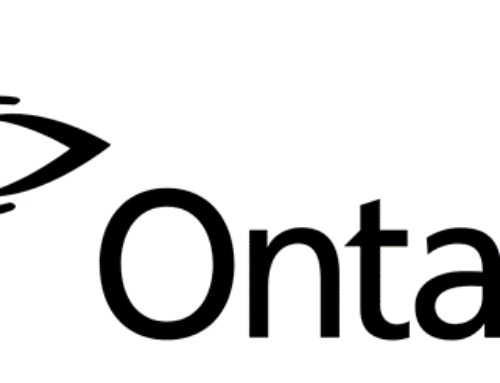AI Didn’t Kill Our RFP Writing Service — It Proved Why Clients Still Need Experts
When generative AI tools like ChatGPT and Claude first appeared, we thought the end was near for our RFP response writing service.
As a company that helps organizations respond to complex government and private sector RFPs, we immediately saw the power of these tools. AI could write, summarize, and reword content in seconds. The logic seemed clear: if a chatbot could write proposals quickly and cheaply, why would clients still need us?
And at first, we weren’t wrong.
Some clients paused their contracts to “try AI.” Others assumed proposal writing was now something they could handle in-house, using prompts instead of professionals. Business dropped substantially. We even put this website up for sale!
But then something surprising happened.
Clients came back.
And most of them shared a similar experience:
“We tried AI for our proposal… but it didn’t really save time, and we didn’t win.”
That’s when it became clear: AI didn’t kill our business—it clarified our value.
The Problem With AI-Generated RFP Responses
When clients experimented with AI tools to generate RFP responses, they expected things to get faster, easier, and cheaper. In reality, most ran into issues they didn’t anticipate.
Here’s what they told us:
1. “It didn’t actually save us time.”
While AI created fast first drafts, clients still had to spend hours editing, rewriting, and reformatting them. AI couldn’t understand the specific requirements of each RFP, so responses missed the mark.
“We spent more time reworking the AI content than if we’d written it ourselves,” one client told us.
Rather than speeding things up, AI often introduced more complexity—especially for high-stakes government bids.
2. “It sounded professional—but didn’t say anything useful.”
AI-generated responses were often full of generic phrases and business buzzwords. They looked polished but failed to answer the RFP questions in a specific, meaningful way.
“We didn’t even make the shortlist. It looked good at a glance, but it didn’t say anything that mattered,” a client told us after missing out on a city contract.
Evaluators are looking for detail, clarity, and evidence—not fluff.
3. “Our win rate dropped.”
Several clients who relied solely on AI saw their success rates decline. Proposals failed to stand out, and in competitive evaluations, small differences made a big impact.
“We lost bids we normally would’ve won,” one client told us bluntly.
AI treats every proposal like a template. It doesn’t know how to highlight what truly differentiates your company.
4. “We missed key requirements—and didn’t even realize it.”
AI tools aren’t equipped to interpret compliance requirements, legal language, or mandatory submission rules buried deep in RFP documents.
“We thought we had everything covered, but we were disqualified on a technicality,” said one client who had to rush to re-enter the bidding process with our help.
Compliance isn’t optional—and AI isn’t reliable enough to manage it.
What Human-Led RFP Writers Do Differently
Once clients returned to working with us, the contrast became clear. With expert RFP writers involved, their proposals improved—and so did their confidence and outcomes.
Here’s what clients said changed:
1. “You helped us focus on what mattered.”
Instead of trying to respond to every question equally, we helped clients understand the evaluation criteria and align their messaging to the highest scoring sections.
“We didn’t realize how much content we were including that didn’t help our score,” one client told us.
By focusing the message and cutting the fluff, we helped them write leaner, smarter proposals.
2. “You pulled better answers out of our team.”
Clients often struggled to translate technical input from their SMEs into clear, persuasive content. We stepped in to bridge that gap.
“You asked the right questions and pulled the answers out of us,” said a client who landed a major public sector win.
We know how to draw out the right detail, translate it into evaluator-friendly language, and position it for scoring success.
3. “You made our proposal feel cohesive and professional.”
Unlike AI, we create a consistent tone, connect ideas across sections, and weave a narrative that builds evaluator confidence.
“With you, it felt like one clear story from start to finish,” shared a client who successfully bid on a federal contract.
That cohesion makes a big difference when a team of reviewers is scoring your proposal against multiple competitors.
4. “We finally felt confident hitting submit.”
With AI, clients said they always felt unsure—had they missed something? Were the answers aligned with the RFP?
“When we worked with you, we knew it was right,” one client told us.
“We weren’t second-guessing anything.”
We review every requirement, every form, and every appendix. Nothing gets left behind. That’s the kind of assurance AI can’t provide.
AI + Experts = The Best of Both Worlds
At Boardroom Metrics, we’re not anti-AI. In fact, we use it strategically—to help brainstorm, streamline, and polish content. But we never rely on it to lead the proposal.
Winning responses still require:
-
Deep understanding of the RFP
-
Strategic positioning
-
SME collaboration
-
Scoring optimization
-
Clear, compliant, human storytelling
And that’s what we do best.
Final Thoughts: AI Is the Tool—We’re the Advantage
AI is now part of the landscape. Anyone can use it.
But that also means everyone is submitting similar-looking, generic responses.
The companies that will keep winning are the ones that pair smart tools with smarter strategy.
That’s why clients continue to trust Boardroom Metrics. We don’t just help them respond to RFPs—we help them win.
Need Help With an RFP?
Whether you’re working on a government bid, corporate proposal, or competitive procurement, we’re here to help you:
-
Decode complex RFP requirements
-
Develop a winning response strategy
-
Write and polish a clear, compliant, evaluator-friendly proposal
Contact Karen now at 416-994-6552 to discuss your next RFP.









Leave A Comment